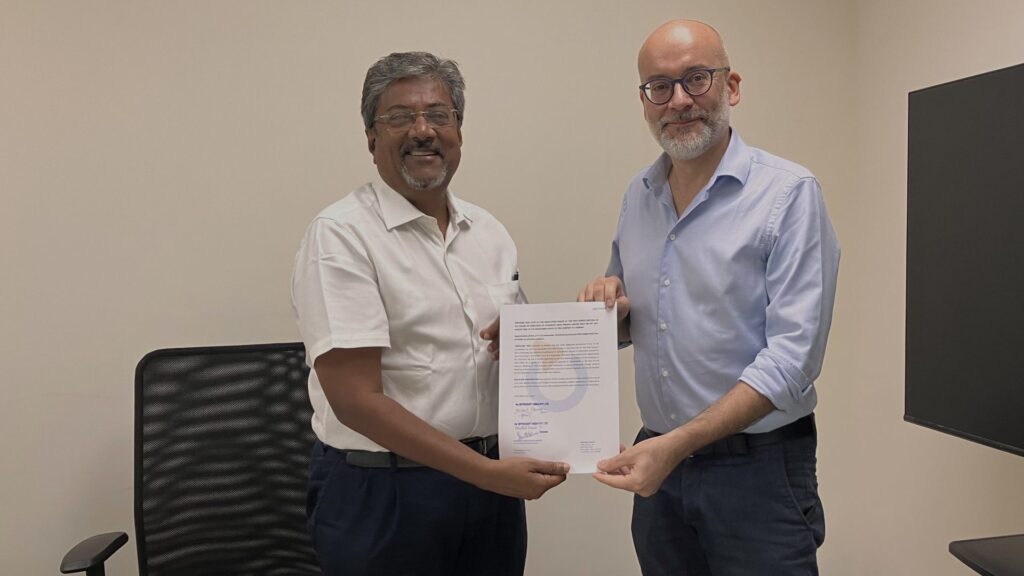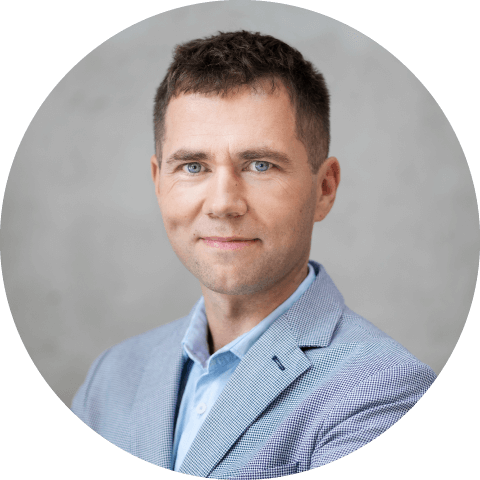Building a reliable business partnership with GOD mhH
Brunswick-based, GOD mbH has been our longstanding customer, we formed a business partnership with them using the Build-Operate-Transfer model. In this installment of our 5th anniversary series, we will be telling the story of our collaboration and explaining how it works on a day-to-day basis.
Let’s jump right in.
GOD mbH
Established: 1985
Industry: Software development
Employees: 500
Location: Brunswick, Germany
In the words of GOD mbH CEO, Igor Krahne, the demand for the company’s services was growing and the team was faced with a serious dilemma: whether to look for an additional team to join them as they were acquiring more customers or rather search for a technological partner that would be able to support them in managing the increase.
The first option has quickly become unattainable: there were simply not enough specialists on the local market who would fit the profile and the quality of the company. Igor Krahne mentions that the next natural step was turning to offshore development for help. This only worked for a while as finding reliable employees in a distant location was more difficult than assumed and with the current business approach of the company, the usage of state-of-the-art technologies and attention to details made the workflow challenging to manage remotely. This model of collaboration also went against what Igor was initially hoping for: being able to fully immerse the external team into the company’s working culture and processes.
The foundation of the partnership
Then GOD mbH’s focus was drawn to a nearby country, Poland where Igor himself already had some connection from previous projects. One of them was Konrad Weiske who back in 2016 has started a small enterprise with a few co-founders. After a few meetings where they had the chance to discuss the potential road map and plan for different aspects of the collaboration, the partnership has become official. Igor Krahne once again:
We already knew that we could combine our team’s business knowledge on how to develop enterprise projects for a particular automotive client with Spyrosoft’s technical excellence.
To achieve the complete involvement of the local team, Igor and Konrad decided to employ the Build-Operate-Transfer model of collaboration. This will ensure that not only that the new employees would be recruiting and onboarded the same way as it was happening at the GOD mbH, but also that the Transfer stage will be where they will be incorporated into the parent company once both parties will decide on ending the partnership.
Building up
Although it’s started small, today the local team at GOD mbH is 60-people strong and has its own headquarters next to the Spyrosoft office. Our partnership also resulted in setting up a separate entity, GOD SE within which the teams in Poland operate. The subsidiary is supervised by Dagmara Tłuszcz who’s also an Office Manager for its local chapter. As she states, the teams in both locations are fully aligned ‘in terms of procedures, tools we use and the communication channels’. Line management and recruitment is entirely on the Polish side, but each team member gets to visit the German offices as part of their onboarding process. This way, they can experience the atmosphere first-hand and better understand the processes that GOD mbH follows. This practice proves to be more than successful in merging both teams – as Dagmara explains:
We simply trust, learn and help each other. It’s reflected in bottom-up internal projects initiated by the team members from both countries. We do not see any distance between people. It often happens that some of the team collaboration turn into friendships, with people making private trips to spend some time together.
The very beginnings of the collaboration were not that effortless, and Igor Krahne recalls significant differences between the developers in Poland and Germany. Polish professionals tend to be less direct, especially when it comes to communicating with management. That was something that both teams were able to quickly overcome, with encouragement from the German counterparts. This approach also requires a lot of trust on both sides, so any team member feels safe enough to discuss any failings to original plan or tasks that are challenging. Once this mutual confidence was built, the communication flow could be uninterrupted.
About the author




